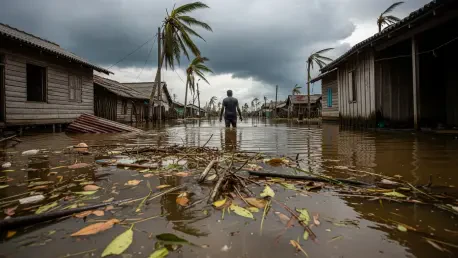
In the very heart of a region grappling with the aftermath of a devastating hurricane, a high-level dialogue recently unfolded, casting a stark light on the growing chasm between the climate pledges made on the global stage and the urgent reality faced by the world's most vulnerable nations. The

The year 2025 is now recognized as a fundamental turning point in the global approach to climate change, a moment when the established order of international cooperation was decisively upended. With the United States, under a renewed Trump administration, conspicuously abandoning its leadership

In a stunning reversal that underscores the growing impact of Western sanctions on global energy markets, India's once-booming importation of Russian crude oil is set to collapse following a record-setting surge. This dramatic shift marks a pivotal moment for one of the world's largest energy

As the global aviation industry grapples with the monumental challenge of decarbonization, a significant proposal has emerged from the Netherlands, where the national carrier is advocating for a landmark government-industry partnership to accelerate the green transition. Following the strategic

As rising global temperatures redraw the world's weather maps, a growing body of scientific evidence now confirms a devastating new reality for Asiclimate change is actively supercharging seasonal storms, turning them into unprecedented catastrophic events. The Intensifying Link Between Climate

A cursory glance at Russia's seaborne fuel export figures for November might suggest a month of relative stability, but this masks a dramatic and turbulent reality unfolding across its critical port infrastructure. While the nation’s total seaborne fuel exports experienced only a marginal decrease